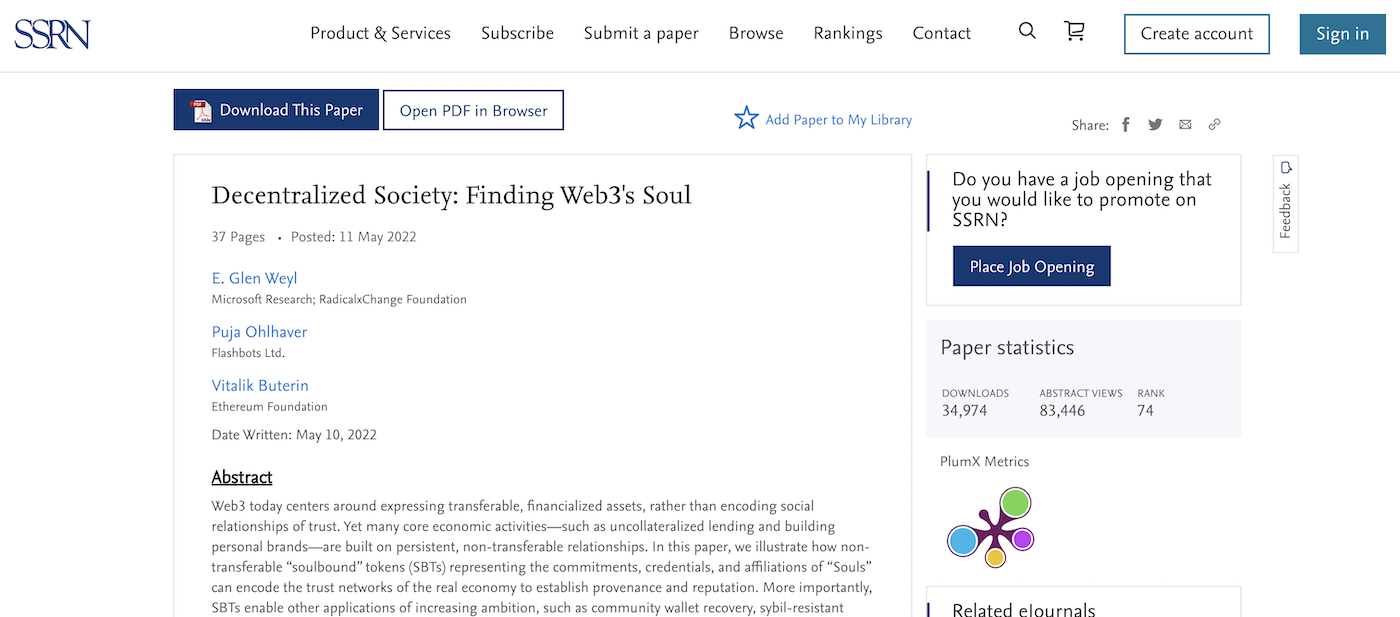Is a decentralized society possible? (I hope so)

Click here to view this email in a web browser
Greetings all,
In this week’s episode of Ventures, my guest Chase Merlin and I discuss product management in Web3, specifically how he is approaching his projects within InfoTokenDAO and BanyanDAO. We talk about how Chase got into Web3, how product managers need to think about Web3 differently than Web2, how NFTs are used in InfoToken, how dynamic NFTs will be used within BanyanDAO to signal progress, how to get involved and help, and why Web3 matters in general for humanity.
Check it out: Web3 Product Management in DAOs, Dynamic NFTs, and Why Web3 Matters :: with Chase Merlin
“Souls” and Decentralized Societies: What’s going on here?
Vitalik recent co-authored a 37-page paper that has gained a ton of attention recently: Decentralized Society: Finding Web3's Soul
There have been plenty of write-ups and tweet threads like this one that cover the TL;DR;, but the basic idea is that a decentralized society could be made up of “souls” attached to wallet addresses that have non-transferrable NFTs associated with them (aka “Soulbound Tokens”). With these basic primitives in place, sophisticated “DeSoc” could become reality because a combination of social recovery and social attestation (“proof of humanity” type things) can be then harnessed by algorithms to bring about tons of helpful use cases.
For example, by allowing sophisticated algorithms to scan through society, more equitable access to work and other opportunities could be surfaced. (e.g. imagine if Meta open-sourced their databases of Facebook, Whatsapp, and Instagram for anyone to use).
Of course, we can easily imagine a dystopian society that could develop, and the paper spends a decent amount of time addressing those issues as well. But still, I prefer to look as optimistically as possible about what DeSoc can provide for society.
Right now it is a major pain to deal with centralized databases and facilities like government-issued IDs (drivers licenses, passports, etc…). While I certainly won’t pretend that these systems will be decentralized anytime soon, I do think that a parallel Web3 society will begin to develop more aggressively this decade and will lead to all kinds of new opportunities for people across social and economic lines.
Still, I appreciate the paper’s careful look at how complex it is when dealing with data regarding communities and society at large. There are a ton of additional nuances with regard to “who” gets to decide “what” is shared with “whom”. For sure, those designing applications on top of such an array of “souls” need to carefully proceed in order to create a future we all actually want to live in.
Have a great rest of your week!
~Will